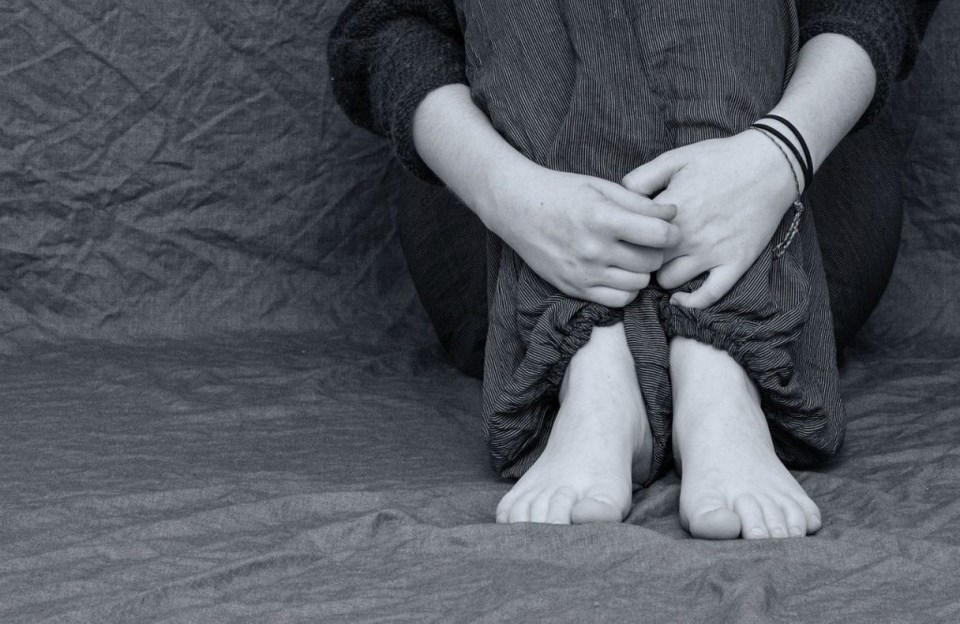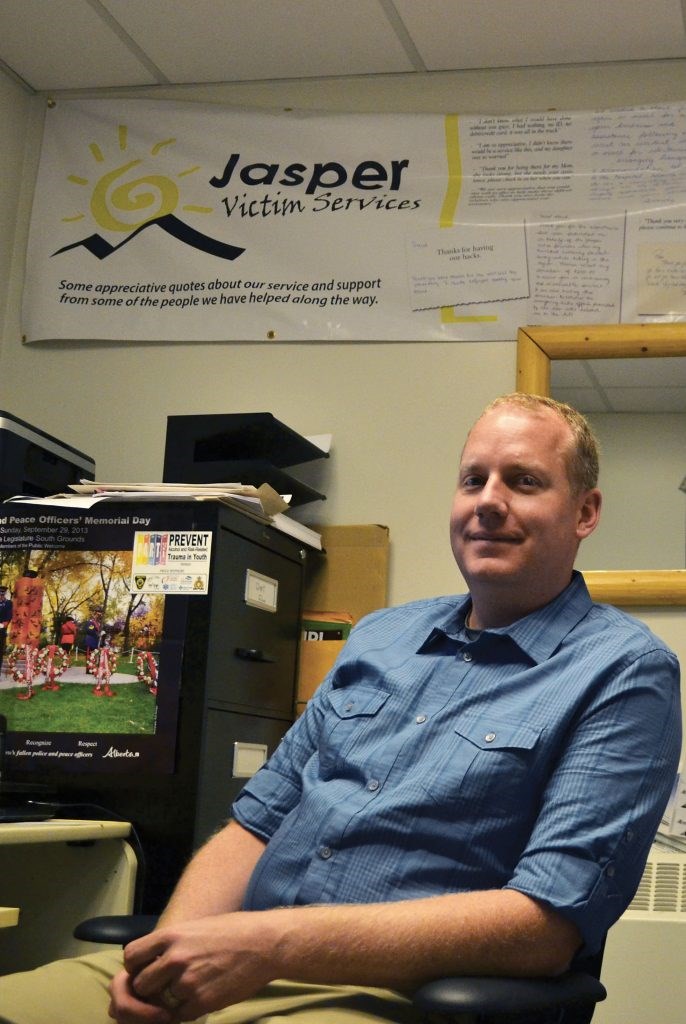
Joanne McQuarrie, Local Journalism Initiative Reporter | [email protected]
The recently-proclaimed Bill 16 is an amendment to the Victims of Crime Act, now known as the Victims of Crime and Public Safety Act.
Already though, concerns have been voiced that the new bill reduces services for victims while it increases enforcement such policing and the number of crown prosecutors.
MLAs Tracy Allard, Grande Prairie, and Angela Pitt, Airdrie-East, are on a Victims of Crime task force and will engage in a consultation process to fine tune the bill as it stands. They'll be doing the consultations with victim services units and victims themselves, and plan to be done by the end of September.
Allard and Pitt emphasized Bill 16 expands the scope of the Victims of Crime Fund to include preventative measures.
"The work Tracy and I are tasked with is figuring out the most equitable and efficient way to fund Victim Services organizations in Alberta," Pitt said. "It wasn't working before."
"Our goal is to develop a system where victims receive the services and supports they need when and where they need them," Allard explained. "That could be financial aid [for example] so they can attend a trial, or [receiving] psychological support."
She said a portion of the Victims of Crime funding will be used for preventative measures, such as the Rural Alberta Provincial Integrated Defence (RAPID) Force.
"It allows a peace officer to support RCMP in rural areas for a quicker response time,” she said.
“Fewer victims is a win-win for everybody, and you won't need as much prevention.
“When criminals realize there's more patrolling then they're less likely to engage in a criminal act."
Pitt pointed out, "There's a lot of prevention that the police do in our rural communities, prior to these kinds of things happening, [like] working with families before an incident."
That may include presentations at schools or engaging the Rural Crime Prevention program, she said.
Having more Crown prosecutors available, Pitt continued, is a good idea.
"One of the challenges we're facing across the country is the lack of court time available to prosecute,” she said.
“We need to address that. Let's stop the delays so [victims] can have justice."
Currently, grants for victim services have been reduced to one-year terms instead of the usual three years, which makes it difficult to plan ahead.
To that, Allard said, "the system was in flux" and that it's "entirely possible" that it may return to the three year term.
"That's one of the things we're going to be asking; we're going to find out,” she said.
Paul Schmidt, who has been the Jasper Victim Services coordinator since 2008, and is the newly-appointed treasurer of the Alberta Police Based Victim Services Association (APBVSA), said in an email shared with Allard and Pitt that with the cuts that Jasper Victim Services is already experiencing, with a limiting one year grant, where volunteers are not able to be rewarded with applicable and valuable training is going to be a detriment.

"The act was scheduled to change and add funds to support programs, instead, we are now looking at further cuts and possibly funding agencies that are not victim-centered,” he wrote.
"I believe that if the amendments to the act go through, the effects will be a detriment to the service that victims receive.”
He said rural areas have not had an increase in the $150,000 cap since 2008, while the caps for larger municipalities were raised a couple of years ago and were doubled to accommodate budget requirements.
About this imbalance between rural and urban victim service units, Pitt said, "The way we do it now, it's not equitable, it doesn't count for population, there's an Indigenous component. There's an inequity between the urban and rural victim services units. Victim of Crime funding hasn't kept up with population growth.
"We know what is happening now is certainly not working. There's going to be uncertainty while changes are put in."
About talking with victims during the consultation process, Pitt said, "We'll be relying on organizations to be the voice for victims. People are [also] welcome to share their experience."
Of Victim of Crime funding, Pitt said, "There was a certain dollar amount attached to a certain crime in Alberta. Bill 16 needs some changes; with lesser crimes there's no longer compensation to victims."
Another element being considered is who handles the Victims of Crime funds.
"When a victim receives compensation for a crime that's been committed against them, there's no strings attached," Pitt said. "Is the money better utilized in the hands of the Victim Services organization, who can guide them with healing? Or does it go directly to the victim?
"Sometimes there needs to be flexibility. We recognize the uniqueness of each situation."
Schmidt noted he took every opportunity to be part of the requested public consultations about changes to financial benefits, but said his input didn't go far.
He said he was a part of the online discussion, completed the survey and wrote to Minister Doug Schweitzer. He said he was assured that the information would be shared with the engagement team to help inform the leadership in their decision making process.
Schmidt said: “The leadership may have been informed by consultations, but they certainly did not reflect recommendations into the changes they made, and victims will pay the price, especially victims in our remote rural area.
"That's been confirmed in my conversations with Solicitor General staff - that the recommendations are no longer being considered."
Brian Turpin, APBVSA president, said, "The concern that we have with Bill 16: it takes away the firewall. We had a protected fund that could only be used to support victims of crime. That fund has always been protected. Now, currently, we are the only province in Canada to not have that firewall. It gives sweeping powers to the government to funnel money wherever they want to."
"Our concern is without a protected fund, we can't compete with crown and policing." That area, Turpin said, "is a Department of Justice operational budget item".
About increasing policing, Turpin said, it may cut down on rural crime and property crimes. But it will not impact the kinds of crime victim services units deal with.
He said: "We have a lot of sexual assaults and domestic violence. Do you think that hiring more police officers will cut down the number of victims of sexual assaults and domestic violence? Absolutely not. On a patrol, that officer has no idea of what's going on behind closed doors. I don't think it'll cut down on sexual assaults, domestic violence, child abuse."
Turpin said the association is looking forward to working with the MLAs.
"We want something put in place to protect a portion of the Victims of Crime Fund specifically for victims," he said.
Turpin shared a letter Heidi Illingworth, Federal Ombudsman for Victims of Crime, sent to premier Jason Kenney. Part of her mandate is to provide awareness of the needs and concerns of victims of crime, and to promote, identify, or facilitate access by victims of crime to related programs and services.
The letter, she said, followed concerns raised with her office about the potential impact of Bill 16 and of particular concern are the proposed amendments that would allow for the diversion of funds meant for victim services towards public safety measures, specifically to police services and Crown attorneys.
Illingworth pointed out the value of well-funded programs and services for victims of crime can't be overstated.
"At my office, we regularly hear from victims and survivors of crime who feel that interactions with the criminal justice system lead to re-traumatization and secondary victimization,” she said.
“Victims are afraid that they will not be believed, that they will face stereotypes and victim-blaming, and are intimidated by the often cold and unresponsive bureaucracy that they face when choosing to engage with the criminal justice system.”
Illingworth emphasized victim services can make an incredible difference in a victim's experience and said that the goal is to facilitate access by victims and survivors of crime to much-needed services and supports that can make the difference between traumatic or positive interactions with the criminal justice system.
Despite the changes being made, Schmidt is adamant about the strength of Jasper Victim Services and said a financial reserve will help the unit as they get through the affected economy.
"We offer assistance that is summed up with terms such as information, support, and referral," he wrote in an email.
There are 12 advocates who take on-call shifts and a board with diverse backgrounds and a strong understanding of what is needed in the community.
Schmidt noted, "Our Golf Tournament Fundraiser on September 11, which has been raising over $30 000 per year, is going to be much smaller this year, but the community support is still huge, as we have golfers and businesses who are jumping in to show their support, and we will have proceeds from our event."



